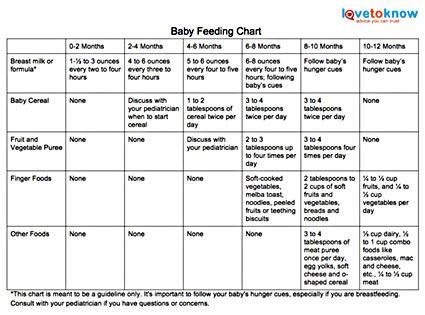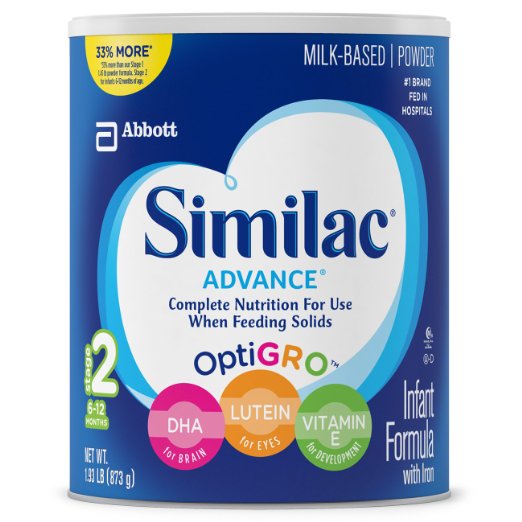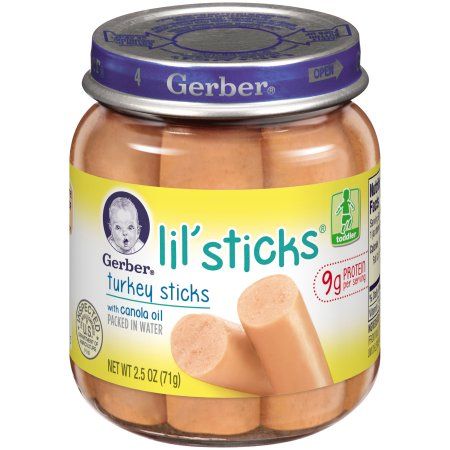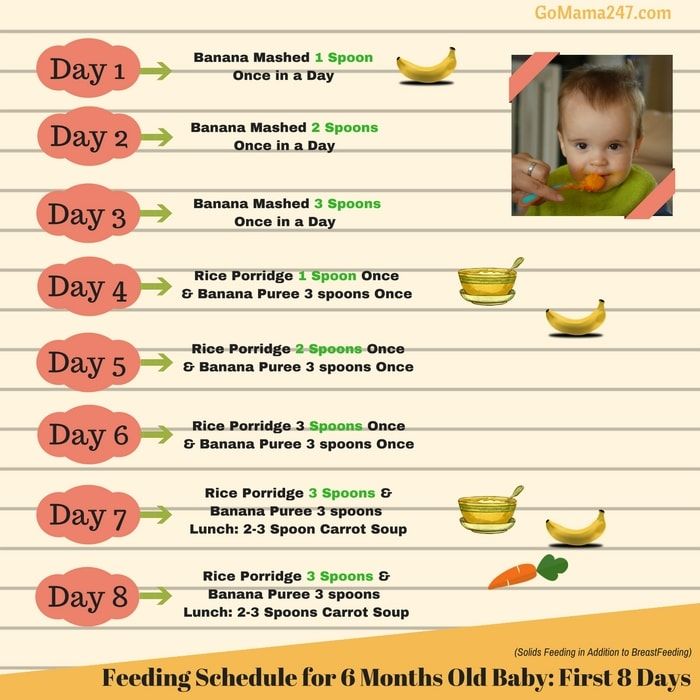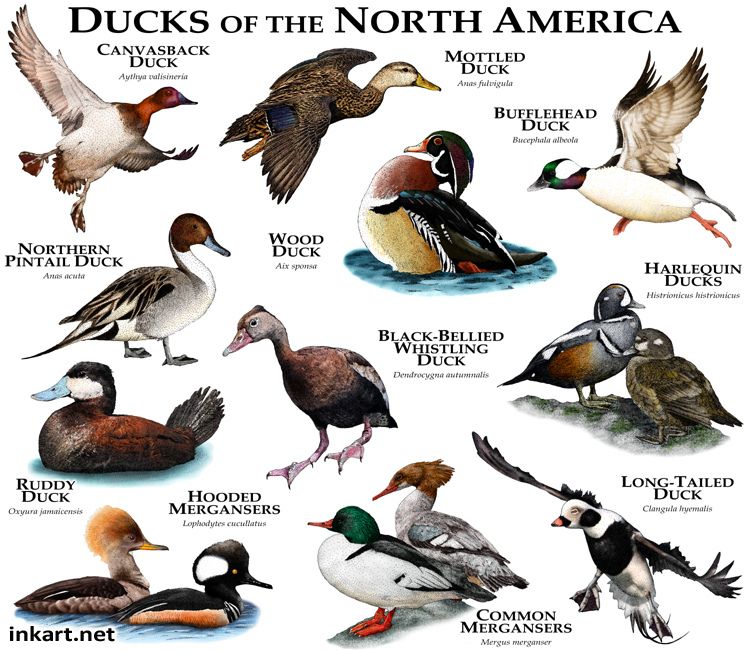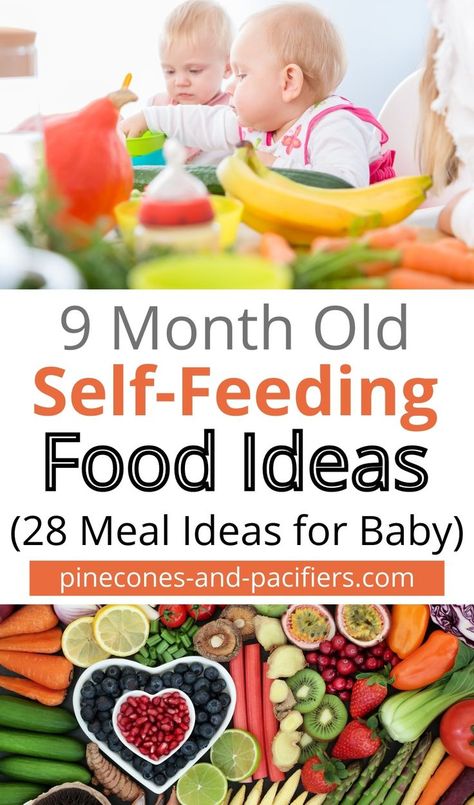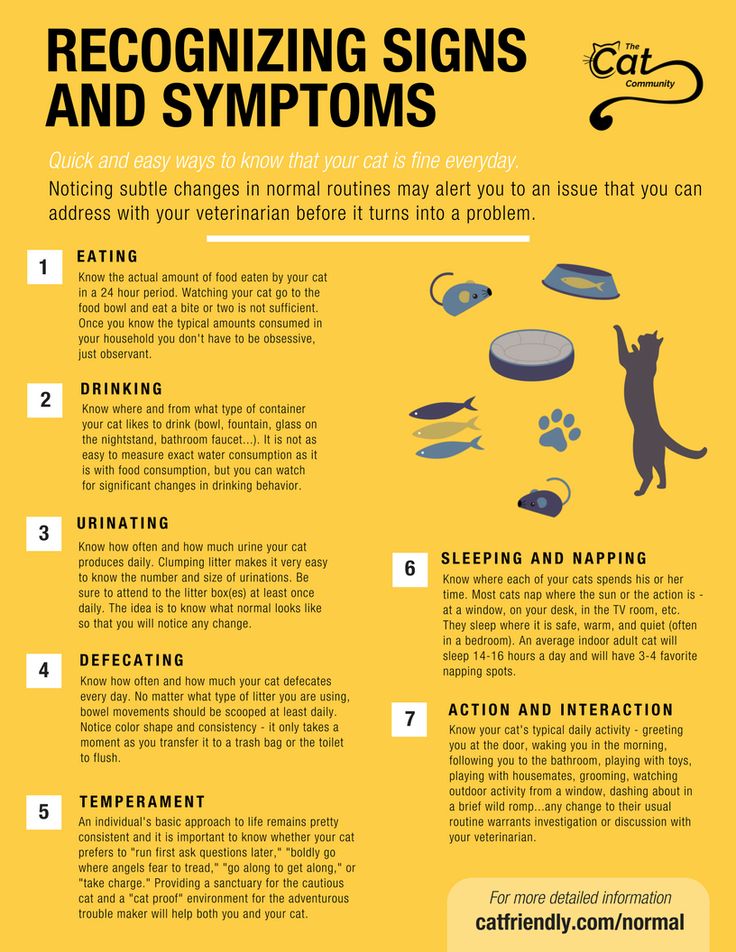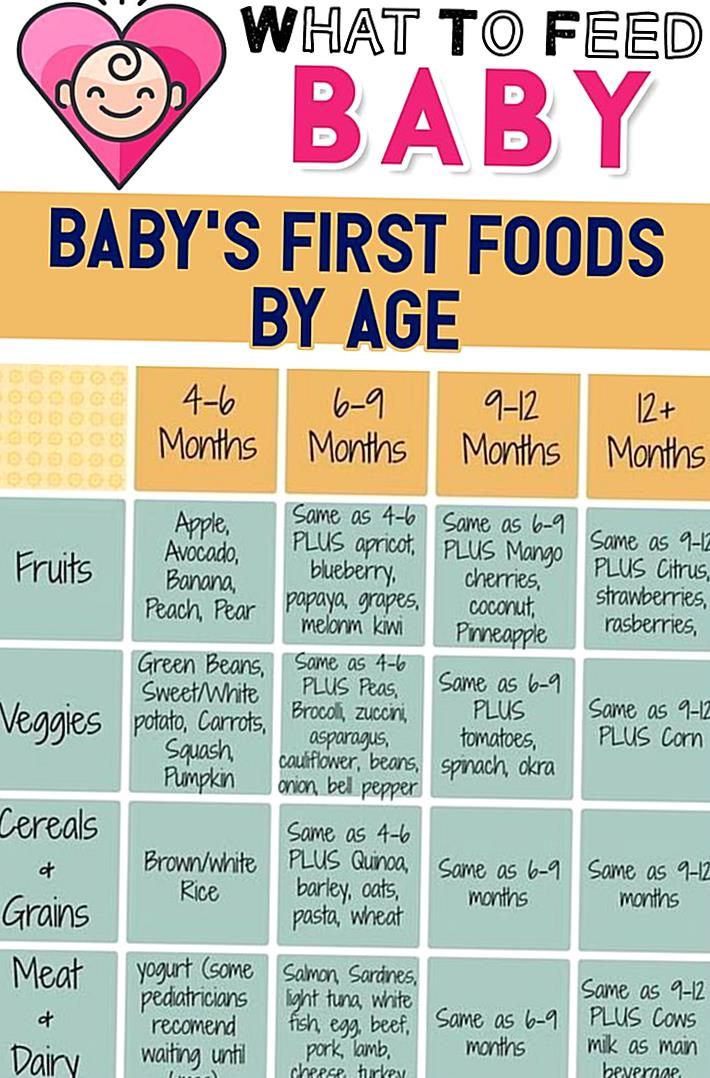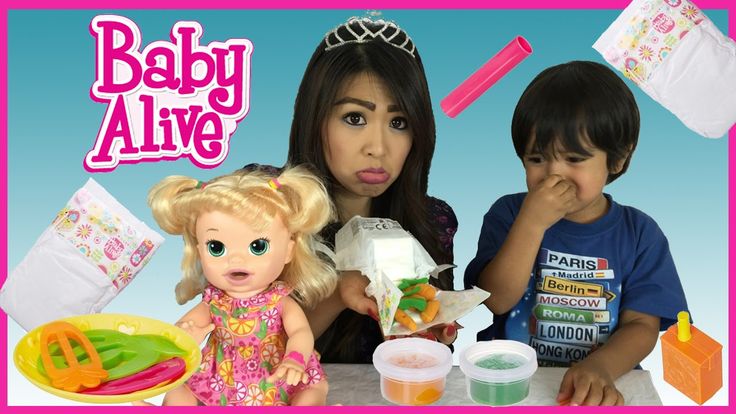Giving baby water between feeds
When can babies drink water?
When can babies drink water? | Pregnancy Birth and Baby beginning of content3-minute read
Listen
If your baby is under 6 months old, they only need to drink breastmilk or infant formula. From 6 months of age, you can give your baby small amounts of water, if needed, in addition to their breastmilk or formula feeds.
Why is water not suitable for babies younger than 6 months?
Before 6 months, breastmilk or formula is both food and drink for your baby. It is all they need, even in hot weather. Giving your baby water may mean they drink less breastmilk or formula. This can put them at risk of not getting enough milk or formula to grow properly. Giving your baby a lot of water or excessively diluted formula over a short time can also make them very unwell.
When can I give water to my baby?
If your baby is around 6 months old, you can offer small amounts of cooled boiled tap water but you should not replace their breastmilk or formula feeds. Breastmilk or formula should still be their main drink up to 12 months of age.
After 12 months, their main drink should be water and cow's milk or breastmilk. You can offer water or milk in a cup. There's no need to boil tap water once your baby has reached 12 months.
If your baby has just started on solids, start with a few sips of water from a cup when they are eating. This is so they can learn about drinking from a cup and it can also help prevent constipation due to the increased bulk of their poo. The aim is to get them used to drinking from a cup as this will be their main way of drinking from 12 months on.
What about in hot weather?
In hot weather, it is important to offer more frequent breastfeeds or bottle-feeds if your baby is under 6 months. Do not offer water unless recommended by a doctor.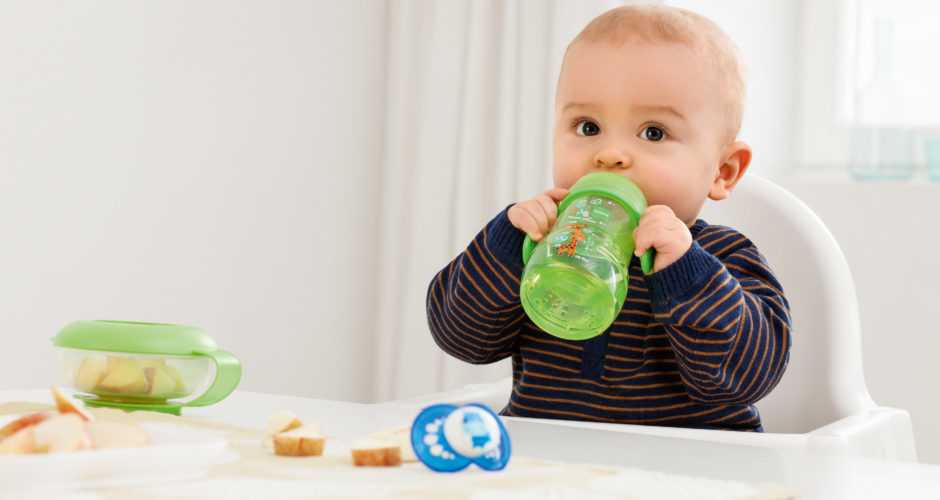
Your baby may want to drink more than usual but for shorter periods. If you breastfeed, you should also make sure you drink enough water.
To make breastfeeding more comfortable for you and your baby in hot weather:
- place a towel, sheet or pillowcase between yourself and your baby
- lie down to breastfeed to reduce skin contact
Your baby is properly hydrated (getting enough fluids) if they have 6 to 8 pale wet nappies over 24 hours.
What if my baby has a fever?
If your baby has a fever, is under 6 months and is breastfed, you may need to offer extra breastfeeds. If they are under 6 months and formula-fed, you can offer smaller amounts of formula more frequently. Do not offer water unless advised by a doctor.
If your baby is older than 6 months, continue to breastfeed or bottle feed. You can offer water in between feeds. The most important thing to check is whether your child is getting enough fluids.
Call Pregnancy, Birth and Baby on 1800 882 436 to speak to a maternal child health nurse for advice and support.
What about other drinks?
Fruit juice, soft drinks and cordial are not suitable for babies under 12 months old.
Caffeinated drinks such as tea, coffee and energy drinks — and, of course, alcohol — are not suitable for children of any age.
Sources:
Australian Breastfeeding Association (Keeping baby cool in the heat), National Health and Medical Research Council (Infant Feeding Guidelines), NSW Health (Babies and children in hot weather), Raising Children Network (Fever), Raising Children Network (Healthy drinks for kids and teenagers), Royal Children's Hospital (Guide to foods for baby’s first year), World Health Organization (Why can’t we give water to a breastfeeding baby before 6 months, even when it is hot?)Learn more here about the development and quality assurance of healthdirect content.
Last reviewed: July 2020
Back To Top
Related pages
- Healthy drinks for kids
- Feeding your baby with formula
- Breastfeeding your baby
- Balancing introducing solids with milk feeds
Need more information?
Disclaimer
Pregnancy, Birth and Baby is not responsible for the content and advertising on the external website you are now entering.
OKNeed further advice or guidance from our maternal child health nurses?
1800 882 436
Video call
- Contact us
- About us
- A-Z topics
- Symptom Checker
- Service Finder
- Linking to us
- Information partners
- Terms of use
- Privacy
Pregnancy, Birth and Baby is funded by the Australian Government and operated by Healthdirect Australia.
Pregnancy, Birth and Baby is provided on behalf of the Department of Health
Pregnancy, Birth and Baby’s information and advice are developed and managed within a rigorous clinical governance framework. This website is certified by the Health On The Net (HON) foundation, the standard for trustworthy health information.
This site is protected by reCAPTCHA and the Google Privacy Policy and Terms of Service apply.
This information is for your general information and use only and is not intended to be used as medical advice and should not be used to diagnose, treat, cure or prevent any medical condition, nor should it be used for therapeutic purposes.
The information is not a substitute for independent professional advice and should not be used as an alternative to professional health care. If you have a particular medical problem, please consult a healthcare professional.
Except as permitted under the Copyright Act 1968, this publication or any part of it may not be reproduced, altered, adapted, stored and/or distributed in any form or by any means without the prior written permission of Healthdirect Australia.
Support this browser is being discontinued for Pregnancy, Birth and Baby
Support for this browser is being discontinued for this site
- Internet Explorer 11 and lower
We currently support Microsoft Edge, Chrome, Firefox and Safari. For more information, please visit the links below:
- Chrome by Google
- Firefox by Mozilla
- Microsoft Edge
- Safari by Apple
You are welcome to continue browsing this site with this browser. Some features, tools or interaction may not work correctly.
When Is It Safe to Give Water to Infants?
Written by WebMD Editorial Contributors
In this Article
- How Infants Stay Hydrated
- When Babies Can Start Drinking Water
- Making Sure Water Is Baby-Safe
- Risks of Water for Infants
- Water as Your Baby Grows
If you have a baby, you’re probably concerned about making sure they have enough water and nutrients to stay healthy. Even though your baby drinks breast milk or formula, is that enough to keep them hydrated? Yes. Here’s what you need to know.
Even though your baby drinks breast milk or formula, is that enough to keep them hydrated? Yes. Here’s what you need to know.
How Infants Stay Hydrated
As an adult, water is the most hydrating thing you can drink. It quenches your thirst and helps all of your systems stay balanced.
But children under a year old don’t need water like adults do. It can actually be dangerous for them. Babies get all their hydration from breast milk or formula.
When Babies Can Start Drinking Water
A baby should drink only breast milk or formula until they’re six months old. It has all the hydration and nutrition they need in the early months.
Even when you start giving them purees or table food at around 6 months of age, breast milk and formula are still more important than water. But you can begin to introduce it.
When babies are between 6 and 12 months of age, breast milk or formula continues to be a priority over water. But if you offer breast milk or formula first, you can then offer water, 2-3 ounces at a time.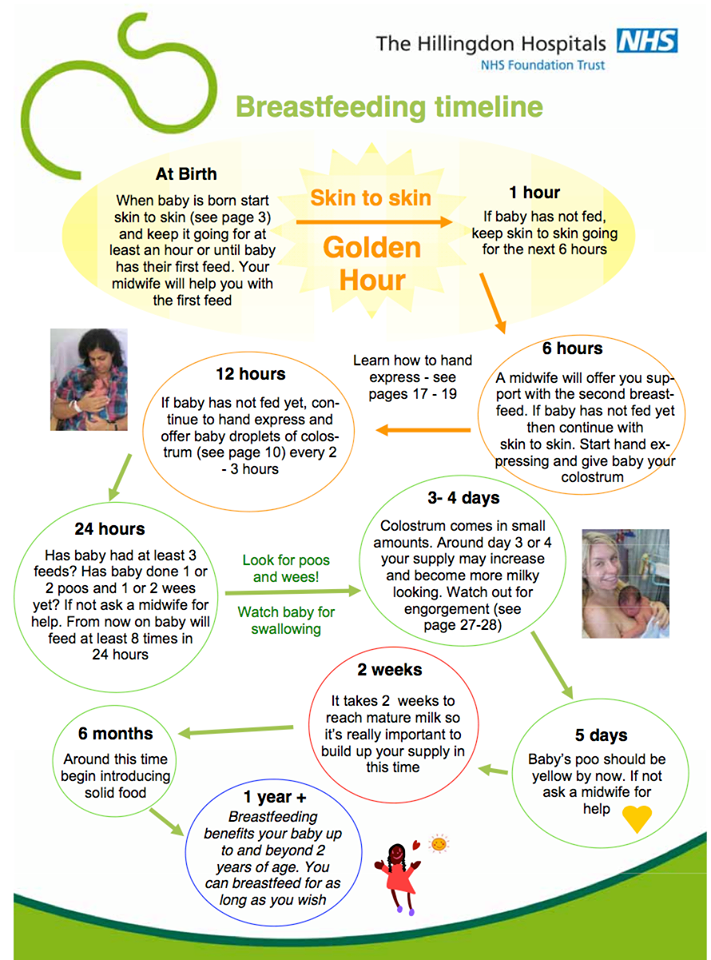 At this age, 4-8 ounces a day of water is enough. More than that may lead to water intoxication.
At this age, 4-8 ounces a day of water is enough. More than that may lead to water intoxication.
Making Sure Water Is Baby-Safe
Before using water to mix baby formula or offering a baby water for the first time, consider testing your tap water. While tap water may have fluoride that helps prevent tooth decay, it could also contain levels of lead that are unsafe for babies.
Most tap water in the U.S. is safe, with a few exceptions:
- If you have untested well water.
- If your water source has recently been contaminated.
- If your baby has low immunity.
If you’re worried about lead exposure and traces of chemicals in your water, install a filtration system or use distilled water instead which can be easily purchased.
Considerations for mixing formula with water. If you use tap water to mix formula, mix only one bottle at a time. Don’t use tap water to mix formula in bulk amounts.
A similar rule applies to water that you’ve boiled. Refrigerate boiled water within an hour, and throw it away if you don’t use it within 24 hours. Always allow the water to cool completely before mixing the formula. Hot water can burn your baby.
Refrigerate boiled water within an hour, and throw it away if you don’t use it within 24 hours. Always allow the water to cool completely before mixing the formula. Hot water can burn your baby.
When you purchase formula, carefully follow the instructions on the container for mixing it with water. Instructions vary by brand. This will ensure your baby gets the right amount of nutrients and hydration.
Mixing in too much formula may lead to constipation or dehydration. Mixing in too little formula may lead to malnutrition or water intoxication.
Risks of Water for Infants
Drinking too much water at a young age is very dangerous. Water causes an imbalance in sodium levels that may lead to:
- Seizures
- Brain damage
- Coma
- Death
Water intoxication leads to changes in behavior such as:
- Confusion
- Drowsiness
- Muscle cramps and twitching
- Nausea and vomiting
- Difficulty breathing
- Weakness
Watch for signs of water intoxication and call your doctor immediately if you have any concerns.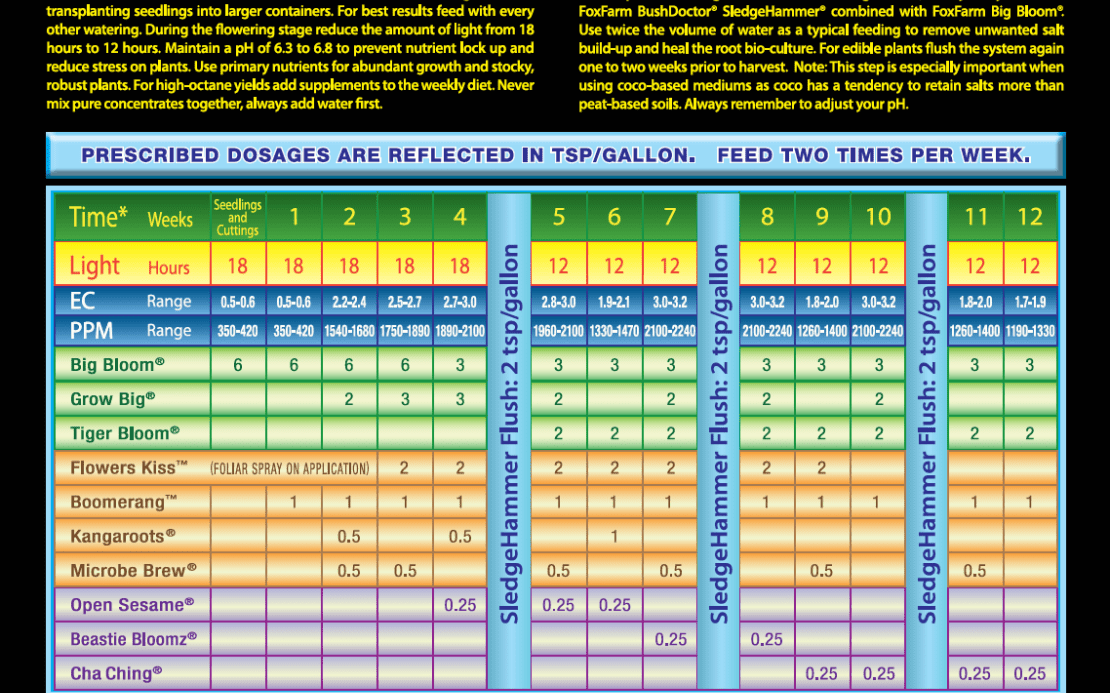
Water as Your Baby Grows
Between the ages of 1 and 3, your toddler needs 4 cups of liquid per day. This is a transitional period that should include both water and breastmilk or formula. The older your child gets, the more water they need. There are several ways you can encourage your older child to drink enough water.
Flavor water with fresh fruit. Water is healthier than juice since many children’s juices are full of sugar. If your child prefers the taste of juice, use fresh fruit to flavor their water. Lemon, berries, mint, and cucumber are great additions.
Offer more fruits and vegetables. Encourage your child to eat more fruits and vegetables with high water content. These help them stay hydrated without forcing them to drink more water than they want. Hydrating vegetables include cucumber, tomato, zucchini, celery, and iceberg lettuce. Hydrating fruits include strawberries, watermelon, blueberries, cantaloupe, and grapefruit.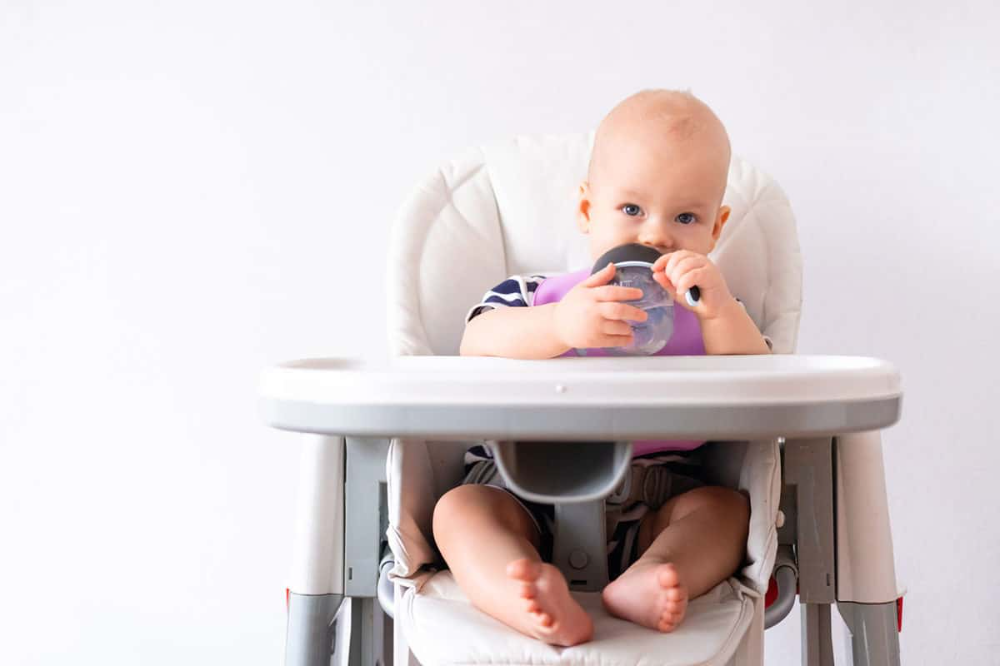
Make creative ice cubes and popsicles. Puree your fruit of choice with water and freeze it into ice cubes or popsicle molds.
Provide special drinkware. Use a fancy cup with favorite colors or characters. When you find ways to make water fun, your child is more likely to enjoy drinking it.
whether to supplement the baby with breastfeeding and artificial feeding, how much water a child can drink
The birth of a baby always involves a lot of questions from parents. Some of them are, of course, related to proper nutrition. And almost always, the first thing moms ask is whether it is necessary to give water during breastfeeding. Will it harm digestion and stool? And if supplemented, then with what water, how often and from what? Let's take a look at all the nuances in order.
Content: Hide
- When a baby needs water
- What are the dangers of drinking water early
- General recommendations for supplementation
When a baby needs water
on breastfeeding, with normal assimilation of mother's milk and regular weight gain, water is not required.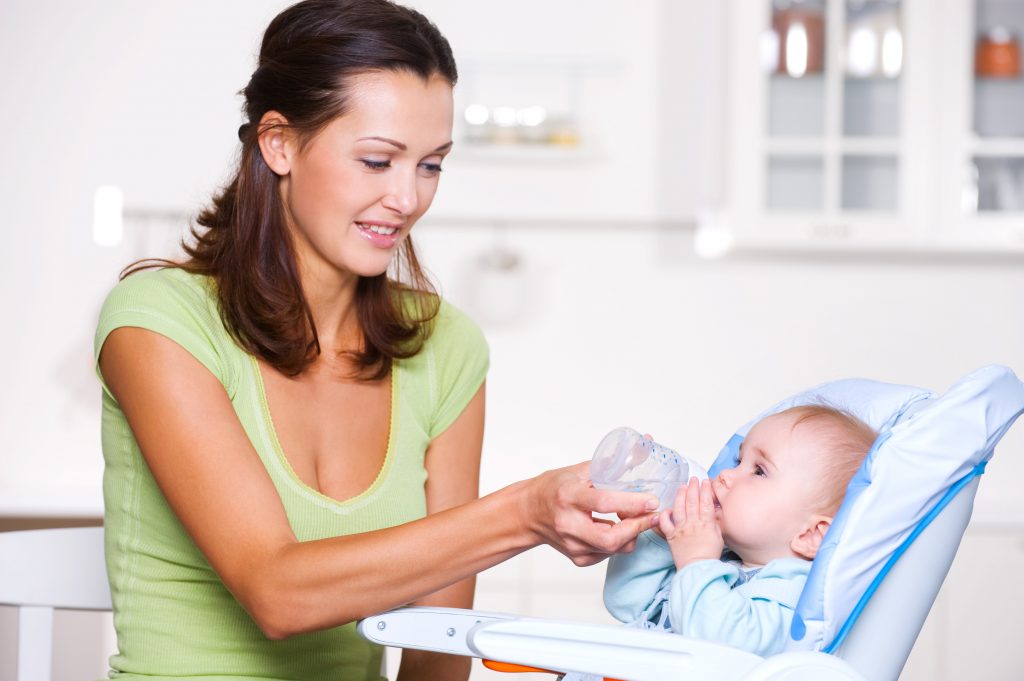 Mother's milk quenches thirst and protects against dehydration. However, there are doctors who express a different opinion from this. So, when should you supplement your newborn? nine0003
Mother's milk quenches thirst and protects against dehydration. However, there are doctors who express a different opinion from this. So, when should you supplement your newborn? nine0003
• With artificial and mixed feeding. Mixtures, even as close as possible in composition to mother's milk, are absorbed longer, and water helps their absorption. Therefore, the use of water in this case is mandatory.
• When breastfeeding with insufficient lactation. Unfortunately, it happens that the mother's milk is not enough for the baby. If the baby cries often, does not gain weight, supplement the baby with water and immediately contact the pediatrician about mixed feeding or a complete transition to the mixture. nine0003
• In hot weather. When it's hot, fluid leaves the body much faster, and feeding a child with milk all the time means forcing him to overeat. Water in this case is your salvation.
• For hiccups. As you know, water helps to cope with hiccups. This is true not only for an adult, but also for a baby.
• For vomiting and diarrhea. They wash fluid out of the child's body, which threatens with dehydration. If you experience these problems, give your baby as much water as possible. nine0003
• To bring down high temperatures. If the baby is sick, his temperature has jumped, then the first advice given by all doctors, without exception, is to drink as much as possible. Milk at a high temperature is contraindicated, only fermented milk products are allowed. Therefore, the best way out for mommy will be to give the child some water.
• When the child is older than two months. If a newborn can only get by with mother's milk, then the baby is a little older - no longer. The body grows, as do its needs. Many pediatricians from 2.5 months already recommend to supplement the baby not only with water, but also with dried fruit compotes. nine0003
IMPORTANT! Irina Vostrikova, a pediatrician at the MEDSI clinic, believes that babies do not need to be supplemented, because breast milk is already 90% water. However, this may be necessary if the mother herself does not drink enough fluids. So, a nursing mother should drink at least 2 liters of ordinary non-carbonated water per day.
However, this may be necessary if the mother herself does not drink enough fluids. So, a nursing mother should drink at least 2 liters of ordinary non-carbonated water per day.
In hot weather, the baby can be offered water between feedings in a volume of 10-15 ml: if the baby refuses, then now he does not need additional liquid. The same recommendations are valid for artificial feeding. It is better to give water to the child with a spoon, and not from a bottle. Because when feeding from a bottle, the baby has a "sucking confusion", and he begins to take the breast incorrectly - because of this, the effectiveness of stimulating milk production is reduced, and the nipples are injured. nine0003
What are the dangers of early water intake? What problems in a newborn can cause frequent water intake?
• Malnutrition. If you give your baby water shortly before feeding, the liquid will take place in the baby's stomach, and he will eat less milk. As a result, the baby will remain hungry, his body will receive fewer nutrients, and the mother will not empty the mammary glands, which threatens to stagnate milk and reduce lactation.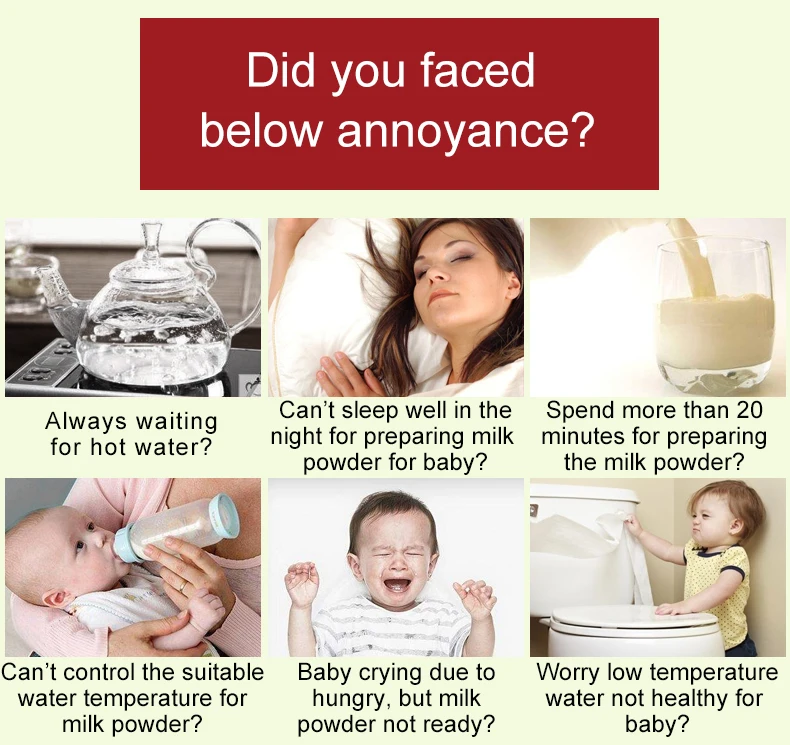 nine0003
nine0003
• Violation of the intestinal microflora. The use of water leads to the appearance in the body of a newborn of the first bacteria, which are not always beneficial. This is a load on the intestines, the likelihood of developing dysbacteriosis.
• Load on the kidneys. The introduction of water into the diet makes the kidneys work more intensively, and the body of a newborn baby may not be ready for this.
IMPORTANT! Elena Shmakova, consultant on breastfeeding and baby care at the Lada Center, teacher of the WHO/UNICEF course "Breastfeeding Counseling", adds that supplementation poses a risk to breastfeeding itself. The fact is that milk is produced in response to sucking, and its amount directly depends on the frequency of breast stimulation. If you give your baby water to drink, he will suckle less often and less, which means that the stimulation of the mammary glands will decrease. nine0003
She is sure that the baby should be supplemented only when breastfeeding does not help with the dehydration of the baby due to malaise.![]() Dehydration can be detected, for example, when the number of urination is less than 6 per day, while the urine is concentrated, dark, it is less than usual.
Dehydration can be detected, for example, when the number of urination is less than 6 per day, while the urine is concentrated, dark, it is less than usual.
Read also: Is it possible to give children mineral water
General recommendations for supplementation
baby. nine0003
• Only purified water should be given. The best option would be to buy bottled water. Today in stores you can find bottles of water intended for children: it has gone through all possible purifications and is devoid of harmful bacteria. It is also possible to use well water at home, which has passed through special children's filters. Avoid using tap water, even filtered.
• Use only boiled water. By doing this, you significantly reduce the risk of crumbs of harmful bacteria entering the body (almost all of them die when boiled). nine0003
• If possible, use silverware. Today, at affordable prices, you can find children's spoons and cups made of silverware. This metal has amazing properties to destroy pathogens. Pour water into a silver cup and let it steep. Alternatively, you can use silver water ionizers. This choice will be more economical
Pour water into a silver cup and let it steep. Alternatively, you can use silver water ionizers. This choice will be more economical
.• If the baby drinks mother's milk, water should be given from a spoon. Drinking from a bottle will be very easy for him, and he may eventually refuse to breastfeed
.• If the baby is healthy and is gaining weight well, then there is no need to insist and forcibly give him some water. So he has enough breast milk.
• Water should be given 10-15 minutes after feeding and between meals. In no case do not let us drink before meals: the crumbs will have a feeling of false satiety.
• Keep a close eye on your baby and don't hesitate to consult your pediatrician. After all, it's about your child's health. nine0003
#Nutrition for children up to a year #Complementary foods
when, how much and what kind of water should be given to a newborn and children during breastfeeding and artificial feeding?
Does a newborn baby need water? This question worries many young mothers, while the recommendations of doctors differ: some believe that the baby does not need any additional fluid, while others argue that the child needs water. Let's try to figure out how and when to give your baby water and how water for newborns differs from ordinary drinking water. nine0091
Let's try to figure out how and when to give your baby water and how water for newborns differs from ordinary drinking water. nine0091
Breast milk is both food and drink for the baby, since it consists of 90% water and in the first weeks of life it is able to maintain the fluid balance at the required level. Mother's milk helps the process of digestion, as it contains all the enzymes necessary for this. Moreover, the mother's body is able to very accurately adapt to the needs of the child, adjusting the composition of milk depending on the situation. For example, if a baby needs more fluid, he will breastfeed more often and, as a result, receive more unsaturated foremilk, which quenches thirst and restores electrolyte balance. nine0003
It may seem that the child does not need water, but this is not so: there are situations when it is indispensable. Indeed, up to three months, babies should be given water only on the recommendation of a doctor. Babies older than four months can be fed quite calmly - contrary to popular belief, this does not lead to the child's refusal to breastfeed, and even more so to his exhaustion.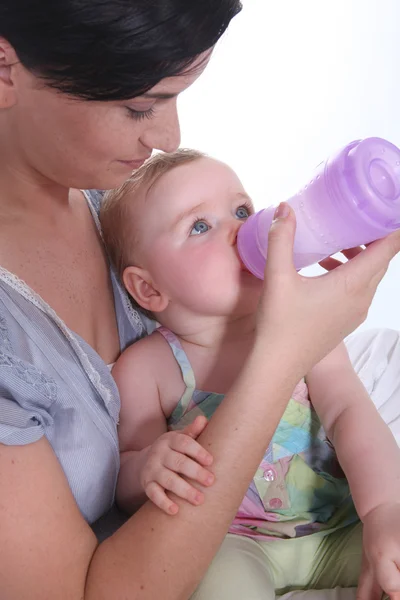 If the baby drinks water with pleasure, there are no contraindications for this. But the lack of fluid for the baby is very dangerous - adults should not forget that the metabolic rate in newborns is very high and moisture loss is also significant. nine0003
If the baby drinks water with pleasure, there are no contraindications for this. But the lack of fluid for the baby is very dangerous - adults should not forget that the metabolic rate in newborns is very high and moisture loss is also significant. nine0003
However, parents need to know when and how much water should be given to newborns and how the type of feeding affects fluid requirements.
Water while breastfeeding
Newborns can drink water from four to five months. It is better to do this between feedings - if the baby feels thirsty, he drinks water with pleasure. How much water can you give a newborn? Here, as in adults, everything is individual. Usually, pediatricians advise giving a certain amount of liquid per day with a calculation of no more than 100 ml per kg of weight, but this also includes breast milk. So the water, in fact, remains 30-70 ml. nine0003
You can feed your newborn from a bottle with a nipple or even from a spoon - this will make it easier to introduce complementary foods later, because the baby will already know how to use a spoon.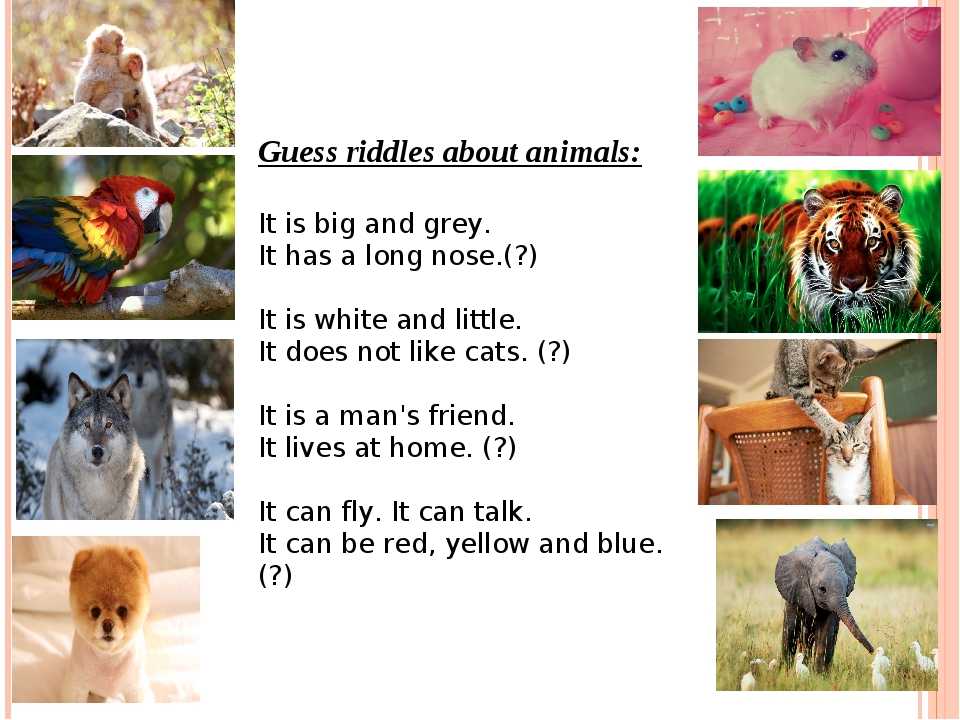 But the most important rule is voluntariness: if the child is naughty and does not want to drink, you should not insist.
But the most important rule is voluntariness: if the child is naughty and does not want to drink, you should not insist.
Water with formula or formula feeding
Formula feeding differs markedly from natural feeding - infant formula contains much more protein than mother's milk, so the baby needs additional fluids. Lack of water, especially when feeding too rich formula, can lead to constipation in children. The extra water will help empty the bowels and make your baby feel better. nine0003
With artificial or mixed feeding, water can be given earlier than with breastfeeding. Unlike formulas, which should be 36-37°C, the water can be slightly cooler: 26-30°C in the first one or two months of life, and at an older age - about 20°C.
All paediatricians agree that with the introduction of complementary foods, water becomes essential. Usually, babies who received only milk or formula before the introduction of complementary foods begin to drink solid food only after one to two months. And babies, accustomed to water, are not capricious and drink it with pleasure after each feeding. nine0003
When is water given to newborns?
Babies should be given water some time after meals and between feedings. Do not forget that the volume of the child's stomach is very small, which means that he simply cannot drink a large amount of water at once - a few teaspoons will suffice for a start.
In some situations, the need for fluid increases. Most often, overheating and very dry indoor air leads to a lack of moisture. Many parents are so afraid of colds in a child that they wrap him in clothes and do not observe the temperature regime in the children's room, which leads to a decrease in air humidity and dehydration of the baby's body. The optimal temperature for a nursery is 20 ° C, and humidity is 50–70%. Dry air leads to increased breathing, a decrease in the protective functions of the body, difficulty swallowing and colic. And in summer, in hot weather, overheating is added to all these problems, because of which the child sweats and loses precious moisture. It is easy to determine the first signs of dehydration: this is rare urination (normally - about 20 times a day), dryness of the mucous membranes, skin, tongue. In such a situation, water is simply necessary. nine0003
Many pediatricians recommend giving newborns water to drink even when they are sick, with fever or colic, which can be easily recognized by tucked up legs, a tense tummy and restlessness of the child. A few sips of warm water can also help with hiccups.
What kind of water should I give to an infant?
Boiled water and water from open sources
Many parents believe that children should drink boiled water, but this is a misconception. Boiling leads to the destruction of only part of the bacteria, in addition, such water contains in excess chloride compounds that are very harmful to young children. Water from open sources is also dangerous - it may contain a high content of nitrates and bacteria from the soil and other harmful impurities. And, of course, babies should not be given healing mineral or sparkling water. nine0003
In addition, water from ordinary filter jugs designed to purify water for adults is not suitable for infants.
Bottled water
Baby water is sold in pharmacies and supermarkets. As a rule, on the bottle it has a special marking and information that this product has been tested by the Russian Academy of Medical Sciences. Water for a baby is different from the usual "adult" drinking water. In particular, other requirements for the content of minerals are imposed on it:
- total minerals less than 200–300 mg/l;
- calcium - less than 60 mg/l;
- potassium less than 5–20 mg/l;
- sodium less than 20 mg/l;
- magnesium - less than 10–35 mg/l.
Boiling such water is not required, but it can be stored only for a day from the moment of opening and always in the refrigerator. The best container for bottled baby water is a glass bottle or polycarbonate container (bottles made of this material are marked with the number seven on the bottom). nine0003
Specially filtered water
Regardless of the brand of bottled baby water and cost, it is impossible to be completely sure of its quality. Alas, there are also unscrupulous manufacturers, in addition, product quality may suffer during improper transportation or poor storage conditions.
Many parents, striving to give their children the best from the first days of their lives, “prepare” children's water on their own. Purifying water with quality home filters allows them to be sure that the filtered water does not contain harmful chemicals and bacteria. Moreover, advanced filters enrich the water with the necessary microelements that a growing child's body needs so much. Using water purification systems, parents themselves control its quality - this gives them the opportunity not to doubt the result. Filtering water at home is somewhat similar to making fresh juice: in both cases, the consumer can follow the process and get a natural and fresh drink. Meanwhile, it is impossible to control the technological process in large-scale production, and it is not known exactly how useful such a product is. nine0003
Another advantage of using home filters is their cost-effectiveness. Water obtained by home filtration is ten times cheaper, although it is not inferior in quality to water from a supermarket, and often even surpasses it. It is suitable both for feeding the baby, and for preparing milk mixtures and cereals for him. For its natural taste and crystal purity, older children will also love it, for whom water filtered according to all the rules will also be very useful. nine0003
Water should be included in a child's diet from birth. It is vital that it undergoes thorough mechanical and biological purification and has a balanced composition of useful substances. When using bottled water, it is useful to carefully read the information on the label. As with any other product, it is advisable to take a bottle with a fresh production date.

